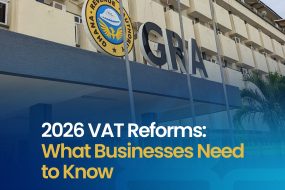
Understanding how payroll works is crucial for businesses in Ghana to ensure smooth operations, regulatory compliance, and employee satisfaction. In this guide, we’ll unravel the intricacies of payroll in Ghana, providing clarity on the processes, regulations, and best practices.
1. Employee Registration:
The payroll process begins with the registration of employees. Employers collect necessary details such as tax identification numbers (TINs), social security numbers, and personal information to establish accurate records. These are used in registering the employees with the Social Security and National Insurance Trust (SSNIT) for mandatory social security payment (Tier 1), the Ghana Revenue Authority for income tax (PAYE) payment, and finally a private fund manager for Tier 2 and/ or Tier 3 payment.
2. Salary Structure and Deductions:
Moreover, employers define the salary structure, incorporating basic wages, allowances, and benefits. Deductions, including taxes, social security contributions, and other statutory deductions, are calculated based on the employee’s earnings. Social Security Deduction is 5.5% of the employee’s basic salary, and PAYE is computed according to the graduated schedule.
3. Tax Compliance:
Tax regulations in Ghana play a significant role in payroll management. Employers are responsible for deducting Pay-As-You-Earn (PAYE) taxes from employees’ salaries and remitting them to the Ghana Revenue Authority (GRA) promptly. Currently, filing and payment are done via the GRA tax portal. This must be done by the 15th of the ensuing month.
4. Social Security Contributions:
Both employers and employees make contributions to the Social Security and National Insurance Trust (SSNIT). Specifically, employers deduct SSNIT contributions from employees’ salaries. Additionally, they contribute their portion to ensure social security benefits for employees. This task is a key part of HR or accounting. Currently, this can be done via email to the assigned branch. Alternatively, you can do this online on the SSNIT portal. Knowing how to process payroll in Ghana helps you stay compliant and manage employee wages accurately.
5. Payslip Generation:
Payslips, detailing earnings, deductions, and net pay, are generated and provided to employees. This transparent document ensures clarity and fosters trust between employers and employees. You can do this with a payroll software like BuiltPayroll.
6. Payment Methods:
Also, salary payments are typically made through bank transfers, with employees having the option to receive their salaries directly into their bank accounts. Some businesses may also issue physical checks.
7. Compliance with Labor Laws:
Employers must adhere to labor laws, including minimum wage regulations and working hour limits. Compliance ensures fair treatment of employees and protects businesses from legal repercussions.
8. Record-Keeping and Auditing:
Accurate record-keeping is essential for auditing purposes. Employers maintain payroll records, including employee details, salary history, and tax documentation, to facilitate audits by regulatory bodies.
9. Annual Returns and Reporting:
Employers are required to submit annual returns to regulatory authorities, summarizing employee earnings, tax deductions, and social security contributions. This reporting ensures transparency and compliance with regulations.
10. Evolving Technologies:
Modern payroll systems leverage technology to streamline processes. Automated payroll software helps businesses manage payroll efficiently, reducing errors and saving time.
Conclusion: Navigating the Payroll Journey in Ghana
In Ghana, payroll is a multifaceted process that involves careful consideration of legal requirements, employee welfare, and financial transparency. As businesses navigate this journey, understanding the intricacies of payroll ensures compliance, fosters positive employer-employee relationships, and contributes to the overall success of enterprises in the dynamic Ghanaian business landscape.












2 replies on “How does payroll work in Ghana”
so can an employee be payed and have a payslips with his /her SSF No. on the payslip
Hello Michael, thanks for the message.
Yes ,an employee can be paid and have their SSF No. captured on the payslip
Kindly reach out to us on 059 570 0399